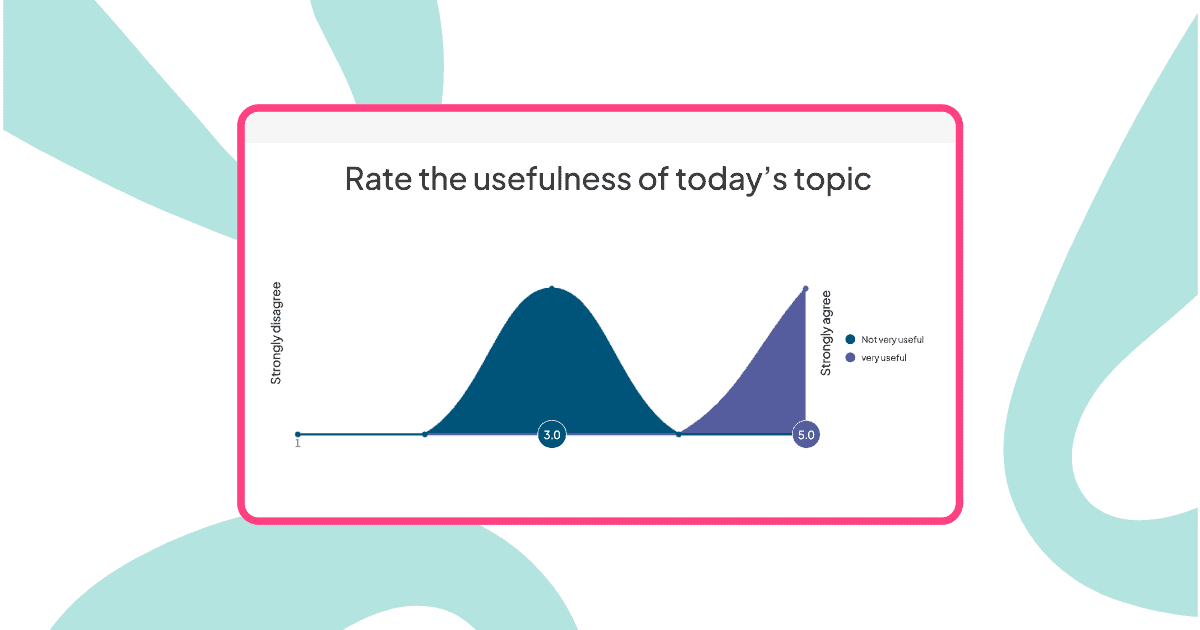What are the top leadership survey questions? A leader plays a pivotal role in the success of an organization, even more so in today’s dynamic work environment. They serve not only as a guide but also as a catalyst for growth. However, not everyone is a born leader.
In fact, studies show that only 10% of us are natural at leading others. So, how can a company know that they have the right leaders in place?
Enter leadership survey questions. They offer a unique and timely, accurate look into a leader’s strengths, weaknesses, and impacts within the workplace. These valuable insights help improve leadership effectiveness, team dynamics, and overall organizational health.
Table of Contents
What is a Leadership Survey?
A leadership survey evaluates the effectiveness and impact of those in leadership roles within an organization. Its primary aim is to gather comprehensive feedback on various aspects of a leader's performance from employees, colleagues, and even clients in certain cases.

Key focus areas of the survey typically include communication, decision-making, team motivation, emotional intelligence, and problem-solving skills. Survey takers are asked to complete both rating-scale questions and open-ended responses to share their perspectives. The responses are anonymous, which plays a crucial role in ensuring honesty and objectivity.
Why Does Feedback on Leadership Matter?
Leadership surveys provide leaders with insights into how their actions and decisions are perceived by their teams, which is vital for self-awareness and improvement. Secondly, it fosters a culture of open communication and continuous development within the organization. The openness to constructive criticism and willingness to adapt is key to evolving leadership styles to meet changing organizational needs and challenges.

Moreover, effective leadership directly correlates with employee engagement, satisfaction, and productivity. Feedback on leadership roles ensures that leaders can align their strategies with the needs and expectations of their team, enhancing team morale and commitment.
Important Leadership Survey Questions to Ask
The questions below are designed to gauge the effectiveness and impact of individuals in leadership roles within an organization.
#1 Overall Effectiveness
How would you rate the overall effectiveness of your direct manager in leading the team?
#2 Communication Skills
How effectively does your leader communicate goals, expectations, and feedback? How does your leader inspire others to achieve set targets?
#3 Decision-Making
How would you rate your leader's ability to make informed and timely decisions?
#4 Team Support and Development
How well does your leader support the professional development and growth of team members?
#5 Problem-Solving and Conflict Resolution
How effectively does your leader handle conflicts and challenges within the team?
#6 Empowerment and Trust
Does your leader encourage autonomy and empower you to make decisions?
#7 Recognition and Appreciation
How well does your leader recognize and appreciate the efforts of team members?
#8 Adaptability and Change Management
How effectively does your leader engage in strategic thinking and planning for the team? How effectively does your leader adapt to changes and guide the team through transitions?
#9 Team Atmosphere and Culture
How well does your leader contribute to a positive team atmosphere and culture? Does your leader set an example of ethics and integrity in the workplace?
#10 Inclusivity and Diversity
How committed is your leader to promoting inclusivity and diversity within the team?
In Short
Well-designed leadership survey questions identify and improve the overall health as well as the performance of an organization. They keep the leaders - the spearheads of the company sharp, engaged, and effective.
Leadership surveys encourage a continuous learning environment, promote open and honest communication, and foster a culture of accountability and self-improvement. By embracing this feedback process, businesses can ensure they are not only meeting the current needs of their teams but are also well-prepared for future challenges and opportunities.
Frequently Asked Questions
What are the survey questions for leadership?
They are survey questions designed to gather feedback on various aspects of a leader's effectiveness and impact within a team or organization. They typically assess communication skills, decision-making abilities, support for team development, conflict resolution, and the promotion of a positive work culture, among other key leadership qualities, to provide a comprehensive evaluation of leadership performance.
What questions should I ask for feedback on leadership?
Three must-asked questions are:
“How would you rate the overall effectiveness of the leader in their role?”: This question provides a general assessment of the leader's performance and sets the tone for the feedback.
“What specific strengths or positive qualities do you see in the leader's leadership style?”: This question encourages respondents to highlight the leader's strengths and what they believe is working well.
“In what areas do you think the leader could improve or develop further as a leader?”: This question helps identify areas for growth and provides actionable insights for leadership development.
How do you create a leadership survey?
To craft an effective leadership survey, you need to define the objectives as well as the key qualities. Design survey questions based on said objectives and qualities to gather feedback.
What is the leadership skills questionnaire?
A leadership skills questionnaire is an assessment tool designed to measure and evaluate an individual's leadership skills and competencies. It typically consists of a series of questions or statements that respondents answer to provide insights into their leadership abilities, such as communication, decision-making, teamwork, and adaptability.







